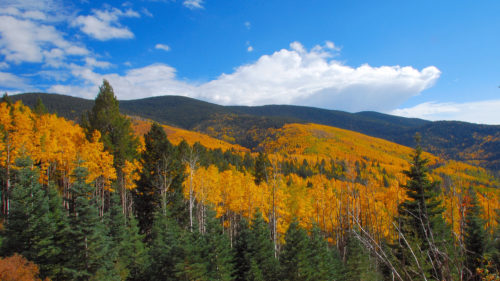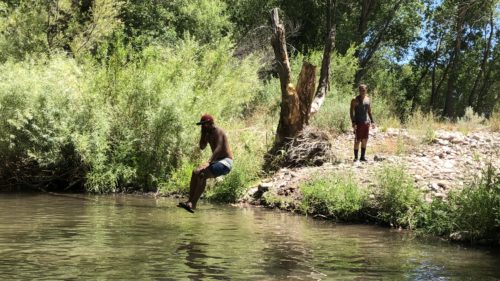For decades New Mexico anglers have been told they could not fish or wade in any waters running through private property without the permission of the landowner. Those who did fish without permission could be cited for trespass.
But that long-held idea – that streams that run through private land can be fenced off – turned out to be wrong. In 2012, Jason Kerkmans, then a law student, published an article in the NM State Bar Association publication Vista – Natural Resources, Energy and Environmental Laws which indicated the state constitution and court precedent said otherwise.
In 2014, the state Attorney General’s Office issued an opinion that anglers have a right to fish, boat or wade in any stream, provided they can reach the stream without crossing private property.
Like Kerkmans’ article, the AG’s opinion was based on the state Constitution and a 1945 state Supreme Court opinion known as Red River Valley.
Following the release of the AG opinion, New Mexico Wildlife Federation asked the State Game Commission numerous times in 2014 to bring its regulations into compliance with the Constitution. They refused.
In late 2014, a small group of landowners and fishing lodge operators filed a lawsuit disputing the AG’s opinion. The Department of Game and Fish and the State Game Commission sided with the landowners and lodge operators.
In early 2015, bills backed by the same interests that brought the lawsuit were introduced in the Legislature. The legislation would permanently eliminate the public’s right to fish in any stream in the state. As introduced House Bill 235 and Senate Bill 226 would have given the Game Commission the authority to determine whether the public could fish, wade or float in a stream that runs through private property.
The bills were amended several times, and SB 226 only passed by one vote at the very end of the session.
NMWF opposed both bills because even after the Game Commission role was removed, the legislation still creates a new definition of trespass that would negatively impact anglers and boaters. SB 226 would, for the first time, direct poaching and trespass penalties at anglers or boaters who accidentally get on the wrong side of a private land boundary – even if that boundary is unfenced or unmarked in any other way. Existing trespass laws are strong because sportsmen and women worked hard to strengthen them years ago. SB 226 is a step in the wrong direction.
SB 226 also does not explain which rivers remain open to fishing or boating. Several lawmakers said the San Juan would be open, but courts have found much bigger rivers to be non-navigable and – according to this law – therefore able to be closed to the public. Oregon and Utah have been put in just such ambiguity by their legislatures resulting in ridiculous court fees for both sides as frustrated citizens wait decades for answers.
Back to news



